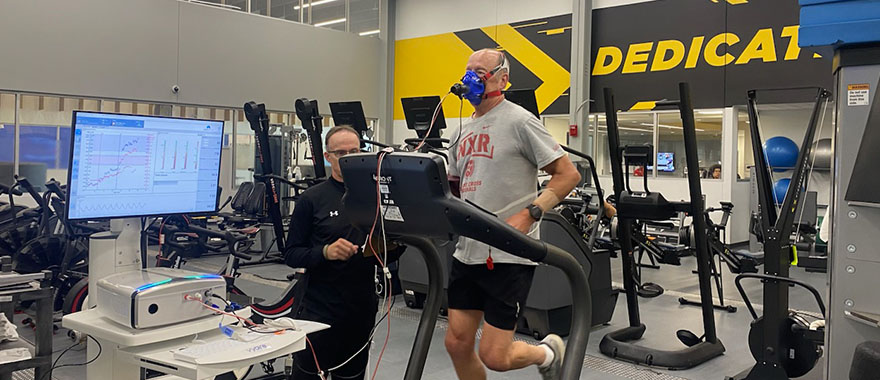How to stay fit while experiencing seasonal affective disorder

Posted: January 17, 2024
If you experience depression-like symptoms during the fall and winter, you’re not alone. This condition is called seasonal affective disorder (SAD), otherwise known as seasonal depression or the winter blues. It’s common during the months when there are longer periods of darkness.
Lack of daylight can affect your mental health and athletic performance. Learn how SAD could be impacting your fitness and how to overcome these challenges.
SAD symptoms and your fitness
- Decreased energy levels: SAD often makes you feel more tired and less motivated. These lower energy levels can prevent you from staying active.
- Disruption of sleep patterns: SAD can change sleep patterns or cause oversleeping. Sleep is crucial for your performance and muscle recovery.
- Changes in appetite: SAD can increase your appetite, especially for carbohydrates. This can lead to weight gain, potentially impacting your fitness and self-esteem.
Strategies for alleviating SAD symptoms
- Adapt your workout routine: Modify your workout routine to accommodate your challenges with SAD. Go with shorter, more intense workouts to maintain motivation and maximize efficiency.
- Explore outdoor activities: It’s important to get outside daily even during the cold winter months. Activities like winter sports, running or walking will expose you to natural sunlight and boost your mood.
- Try light therapy: Light therapy uses a bright light to mimic natural sunlight, helping to regulate mood and energy levels. Incorporate light therapy into your morning routine during breakfast or while stretching.
- Establish a consistent sleep schedule: Prioritize your sleep by maintaining a consistent sleep schedule. Create a pre-sleep routine with meditating or less screen time so you’re set up for a restful night.
- Eat nutrient-rich foods: A well-balanced diet will help you overcome cravings. Include nutrient-rich foods that support your well-being, such as fruits, vegetables, lean proteins and whole grains.
- Embrace social support: A support system is the backbone of accountability. Stay connected with friends, workout partners or a fitness community that will help motivate and encourage you to reach your fitness goals.
With these strategies, you can take on seasonal affective disorder and maintain your physical and mental well-being during the winter months.




